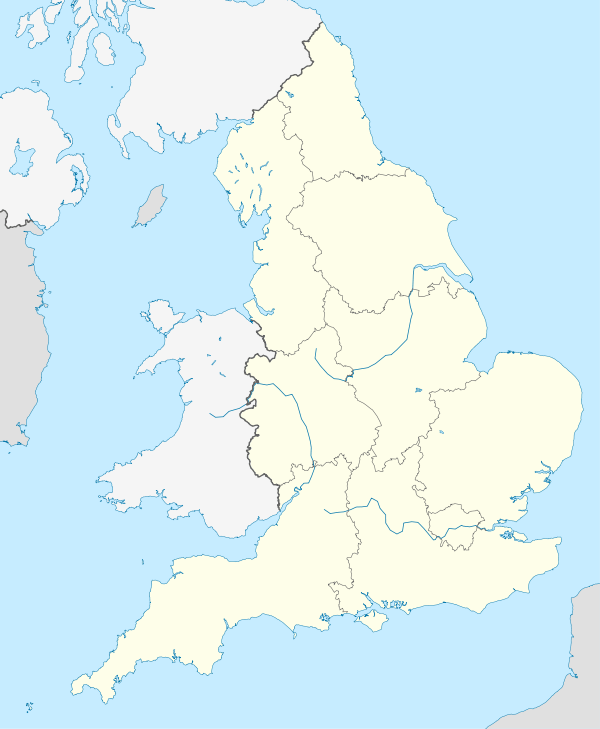Institute of Food Research
Coordinates: 52°37′26″N 1°13′28″E / 52.623820°N 1.224523°E
| Institute of Food Research | |
|---|---|
 Institute of Food Research | |
| OS grid reference | TG183077 |
| Abbreviation | IFR |
|---|---|
| Formation | 1968 |
| Legal status | Non-profit company and charity |
| Purpose | Food research in the UK |
| Location |
|
Region served | UK |
Membership | 189 scientists |
Director | Professor David Boxer |
Main organ | IFR Governing Body |
| Website | IFR |
The Institute of Food Research (IFR) in the United Kingdom is one of the world's leading agricultural and food science research institutions. It prides itself upon its wealth of research, regularly contributing to both government policies and industry bodies as well as public relations.
History
Based in Norwich, IFR was originally founded in 1968; however its research can be traced back almost 100 years to the low temperature research station in Cambridge.
The Institute was based on four sites across the UK:
- Shinfield near Reading in Berkshire
- Lower Langford in North Somerset
- the Long Ashton Research Station in Somerset
- Colney in Norwich
In 1999, it was decided that the research centres should all consolidate on the Norwich Research Park.[1] The site is in the parish of Colney on the B1108, just west of the University of East Anglia.
Current focus
IFR aims to fulfil a UK and international leadership role in delivering:
- fundamental food & health research
- applied and translational research in food & health for societal benefit
- high level training in food and health research
- effective networks with:
- academic and research centres for research and training
- food industry for strategic research and knowledge exchange
IFR is one of eight institutes that receive strategic funding from the Biotechnology and the Biological Sciences Research Council (BBSRC).
IFR science aims to meet the challenges of supplying safe, nutritious food that promotes healthy ageing now and in the future. IFR provides underpinning science for government and the food manufacturing industry.
IFR science strategy aims to understand the working of the intestinal tract, how food-borne bacteria can cause human disease, and how the chemical and physical nature of our food influences health and can add value to the food chain. We have strategic relationships with other BBSRC institutes, the University of East Anglia and Imperial College, London.
IFR scientists are advancing understanding of:
- the fundamental biological processes within the gut, involving the interaction between food, the microbes that live in the GI-tract (microbiota) and the human gut epithelium
- how nutrients and other food components pass into the blood stream and affect our health
- the survival and growth of foodborne microbial pathogens
The Institute is uniquely positioned to contribute to understanding how food can enhance health, thus contributing to the quality of life of individuals and the economic health of the nation. We address the Biological Sciences Research Council's three key strategic research priorities :
- Bioscience for a sustainable supply of sufficient, affordable, nutritious and safe food, adapting to a rapidly changing world
- Basic bioscience underpinning health driving advances for better health across the life course and improved quality of life, reducing the need for medical and social intervention
- Bioenergy and industrial biotechnology biofuels and industrial materials from novel biological sources, reducing dependency on petrochemicals and helping the UK to become a low carbon economy
IFR receives great support from its parent research council the Biotechnology and Biological Sciences Research Council (BBSRC).
IFR has a significant presence in the UK, Europe and worldwide. Its vast research base extends the focus of extremely topical subjects, such as food security, diet and health including obesity and healthy aging.
Consultancy work
The Institute has its own laboratories and staff, and can access a full range of experts and resources to put together large, multidisciplinary teams. The Institute also provides access to food experts on a consultancy basis (see IFR Extra), and can undertake short-term applied research, trouble-shooting and specialist analysis, making its expertise available and affordable to all companies.
IFR Extra
IFR Extra[2] offers a range of research and consultancy services to the food sector, such as microbiology and analytical sciences.[3] IFR Extra provides a route by which the wider research expertise of IFR is accessible to small and medium-sized companies in the food industry. Industrial clients often demand a confidential and rapid response, and this is recognised IFR Extra’s management systems, which are accredited to ISO9001.
Core Facilities
IFR has invested in key platform technologies (in the Analytical Sciences [3] and Proteomics Units[4]) that are central to the effective delivery of IFR science. The Institute also maintains a Human Nutrition Unit for non-residential metabolic studies involving human volunteers.
References
- ↑ Norwich Research Park
- ↑ IFR extra
- ↑ 3.0 3.1 The Analytical Sciences Unit at IFR
- ↑ The Proteomics Unit at IFR